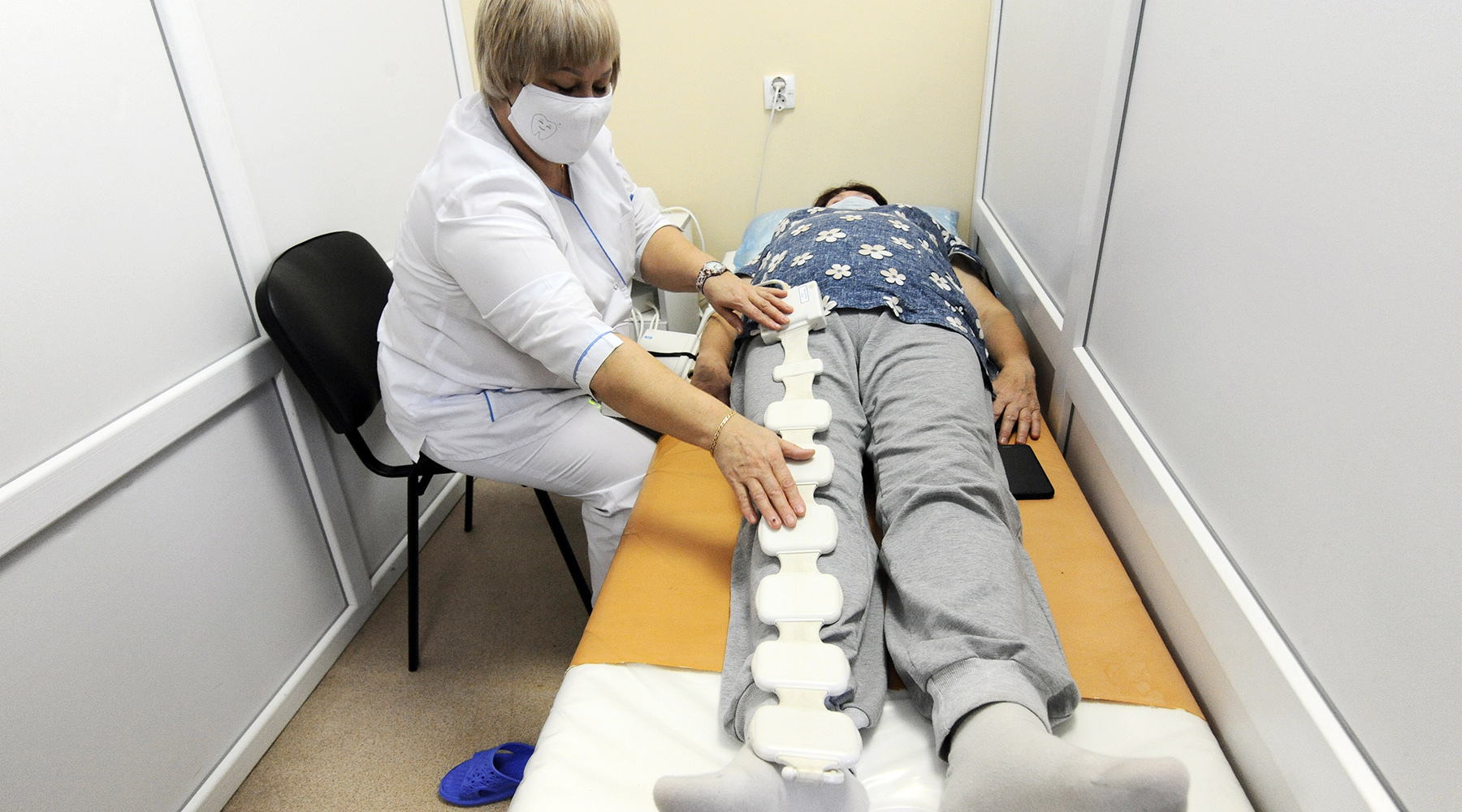- Konstantin Sergeevich, what is the best way for patients to recover from COVID-19?
- Now there are many places where you can do it.
There are special equipment, pressure chambers, instructors.
Time heals, but doctors are faster.
We must try to recover with outside help, there is nothing wrong with that.
At Sechenov University, on the very first day, we diagnose the state and functioning of the life-supporting systems of the body: spiroergometry to assess the work of the cardiopulmonary system, electrocardiogram, Holter monitoring of cardiac function, reactive protein sampling and complete blood count.
According to world practice, all patients who have had pneumonia caused by coronavirus infection have damage to the lung tissue - fibrosis (replacement of normal lung tissue with scar formations).
These disorders are a prerequisite for changes in the work of the heart - the development of the primary pulmonary heart.
This clinical syndrome is based on pulmonary hypertension (high blood pressure) or dilatation (expansion) of the right ventricle of the heart with symptoms of circulatory failure.
- Can you name the necessary rehabilitation measures?
- Among others, I can list hyperbaric oxygenation (the method of saturating the patient with oxygen under high pressure. -
RT
), physiotherapy exercises with activation of respiratory reserves and training of the respiratory muscles with stimulation of the digestive tract (liver, spleen - detoxification).
Also prescribed are complex training of the cardiopulmonary muscular systems, classes on the anti-gravity track, training to compensate for damage to interneuronal connections and balance training, manual massage and matrix rhythm therapy, acupuncture and improvement of the immune response and nutritional support of the body (vitamins C, D, K) , suppression of systemic inflammation (chlorella), normalization of protein metabolism, compensation for possible anemia (iron-containing drugs).
- Please name the main indicators to which you should pay attention.
- It is worth doing a biochemical blood test, check it for clotting.
Since there are many heart attacks.
This situation needs to be changed in the coming year.
- We have already discussed recovery from COVID-19 with you. How has the perception of coronavirus changed recently and approaches to recovery?
- Over the past time, an understanding has come that the mechanism of tissue damage is the syndrome of increased blood clotting.
And viral pneumonia is not really pneumonia, it is pneumonitis.
What is pneumonitis?
These are thrombosis that form in the lungs due to blood clotting.
And this mechanism is the main one that damages organs and tissues.
Thrombosis is formed in the kidneys and in the brain, leading to strokes, heart attacks.
It happens that together with a stroke it turns out that it was preceded by COVID-19.
- Can you name the main consequences of the disease?
- I will note weakness and shortness of breath.
And the weakness is so severe that the patient is discharged from the hospital, and he cannot even do some household things at home.
And the patients go back to us for rehabilitation.
RIA News
© Ilya Pitalev
- It's not just about the elderly, is it?
- Right.
Patients usually come to us after 40 years.
The saddest thing is that they often led an absolutely healthy lifestyle, were active, and had excellent immunity.
And that great immunity gave them a great cytokine storm - a dangerous immune system response.
Another curious aspect is that vitamin D disappears in patients. Deficiency was found even in summer, and young people who went to sunbathe received this vitamin along with sunlight and ate well.
- Does this mean that vitamins need to be stored in reserve for prevention?
- Yes, vitamin D can be stored, but vitamin C is a situational thing, it does not accumulate and is quickly consumed.
A sufficient amount of vitamins can really ease the course of the disease, reduce the likelihood of death.
- What additional risks are emerging now?
- Now holidays are coming, shops are packed, traffic jams on the roads.
People travel, congratulate, buy gifts, celebrate the New Year with relatives.
And, unfortunately, they get infected.
Why is it dangerous?
In January we will have a new round - an increase in morbidity is possible.
During the holidays, doctors recommend restrictions on communication
RIA News
© Alexey Sukhorukov
- There were also statements about premature aging of the body.
- The aging of the body is ongoing.
After any serious illness, processes occur that irreversibly damage organs and tissues.
- What about re-infection?
- As far as I understand, if some cases are recorded, then people get sick in a mild form.
- Those who have had coronavirus can check antibodies by the level of immunoglobulin G. How long do they persist in the body?
- Yes, antibodies are tested in this way.
But six months later, you need to check them again, there may be a sharp decline.
We see this on our employees - after six months, a sharp decrease in the number of antibodies begins.

